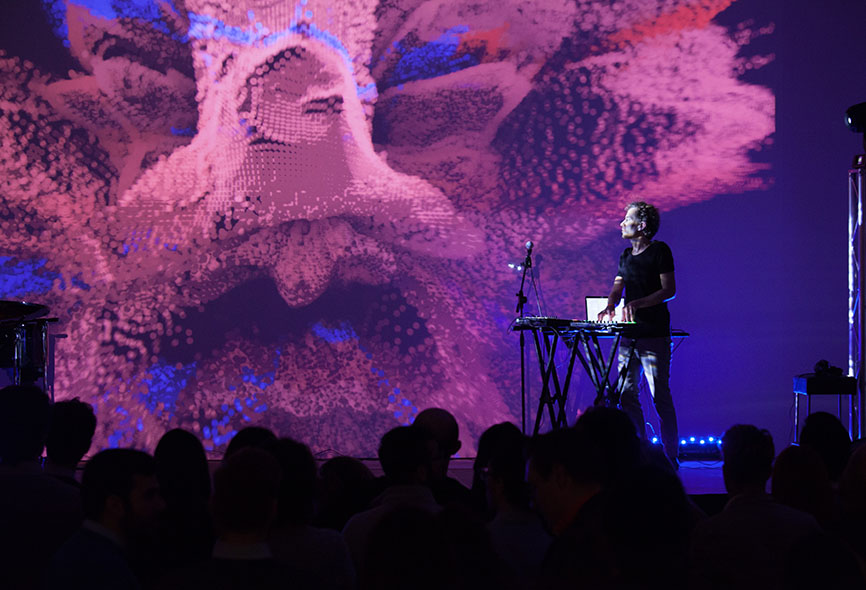You enjoy relaxing to the sound of Bruckner, find that music doesn’t have to be danceable and are open to musical projects beyond the big concert halls? Then we would like to take you on a journey into the world of music at the Ars Electronica Festival, which this year focuses on the first AIxMusic Festival. We have the best festival tips for music lovers for you!
The first stop for music lovers is definitely Thursday, the opening day of the festival. „Unboxing the Festival“ is the motto for the Ars Electronica 2019 opening, with numerous performances and concerts on the program and three stages in POSTCITY: the Basement Stage, the Courtyard, and the Gleishalle. The former will feature Dagmar Dachauer (AT), Kilian Immervoll (AT) with “The Feline Project,” Corea Impact (KR) with “TechiEon,” Carla Bolgeri (CL/IT) and Francisco Marín (CL) with “Vocals”, and Giulio Colangelo (IT) and Valerio De Bonis (IT) – LOXOSconcept with “[re]BO[u]NDS ~ expanded media.” The stage in the courtyard is shared by Tomomi Adachi (JP), Andreas Dzialocha (DE), and Marcello Lussana (IT) with their “Voices from AI in Experimental Improvisation,” Reeps One x Dadabots ft. “Second Self A,” Jennifer Walshe (IE) and Memo Akten (TR) with “ULTRACHUNK,” Alex Braga (IT) and Cliché (IT) with “A-MINT,” Ei Wada (JP) with ELECTRONICOS FANTASTICOS! featuring Stefan Tiefengraber and Ritornell (AT) & Mimu Merz (AT). Then, in the Gleishalle, Vladislav Delay & AGF present Rakka (DE/FI)—and last but not least, Ryoichi Kurokawa (JP) will perform his “subassemblies.”
Since 2002, Ars Electronica and the Bruckner Orchestra Linz have been staging the “Big Concert Night”, a unique convergence of classical music and the digital world. 2019’s concert is all about Gustav Mahler.
The first performance is “Mahler Remixed” by Christian Fennesz, who improvises with samples from various Mahler symphonies with the capable accompaniment of pianist Markus Poschner. Immediately afterwards, a choreography of man and machine takes the stage—the solo dancer Silke Grabinger interacts with six of Kuka’s industrial robots. The normal sounds of their motors are amplified to create an unusual sound space.
Once the robots have come to a halt, the third part of the evening begins. Under the direction of principal conductor Markus Poschner, the Bruckner Orchestra plays Gustav Mahler’s Tenth Symphony. Also premiering is a piece composed by OpenAI’s MuseNet, to which were given the first ten notes of the viola theme from the opening of Mahler’s 10th Symphony. The piece that resulted was orchestrated by Ali Nikrang and Markus Poschner and will be performed for the first time by the Bruckner Orchestra Linz at the Big Concert Night.
Those who couldn’t get enough and for whom the Big Concert Night was a little too “classic” should mention that the Ars Electronica Nightline will start right after, bringing danceable beats to the stage in the courtyard of POSTCITY as well as in the Gleishalle.
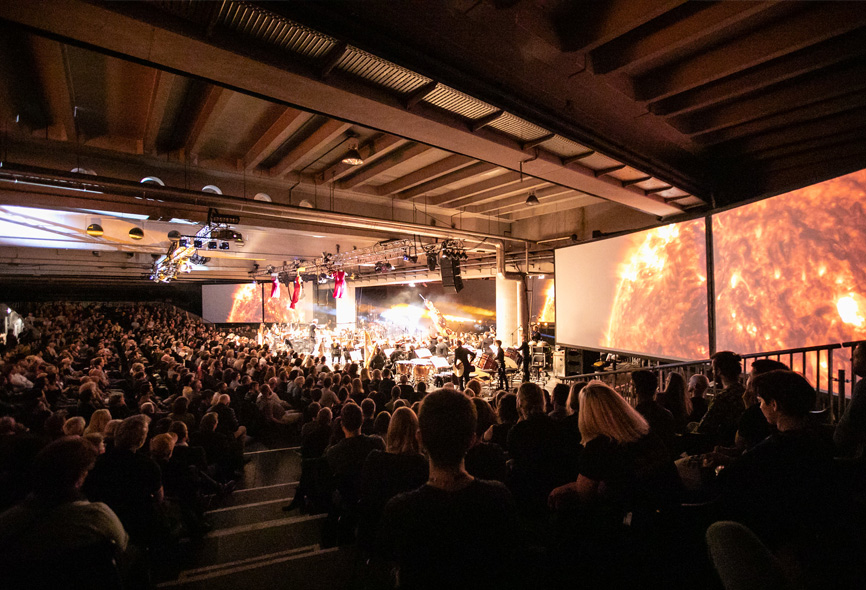
After you have had a good night’s sleep, we recommend a trip to Sankt Florian on the Saturday of the festival. From midday there will be shuttle buses to St. Florian, a community of 6185 inhabitants in the immediate vicinity of the city of Linz. The village is famous beyond the borders for the Augustiner Chorherrenstift, where Anton Bruckner had already worked. And it is precisely here that the first “AI x Music Festival,” which Ars Electronica is organizing jointly with the European Commission as part of the STARTS Initiative, will take place on Saturday.
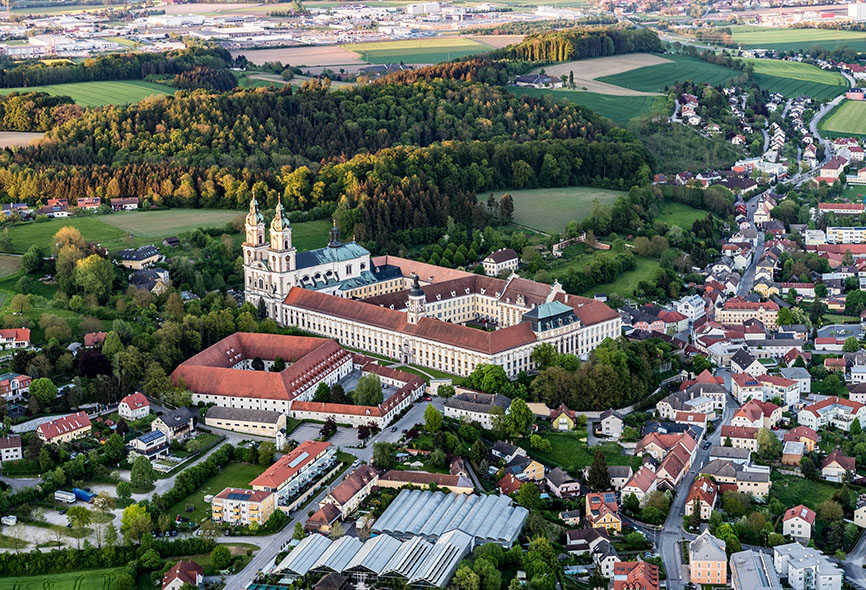
Throughout the afternoon and evening, moderated lectures, talks, installations, and concerts will be on the program. Renowned celebrities will be on hand, including Hermann Nitsch, Josef Penninger, Renata Schmidtkunz, Amanda Cox, Christian Fennesz, Dennis Russell Davies, Maki Namekawa, Markus Poschner, Siegfried Zielinski, Anthony Moore, Memo Akten, Sophie Wennerscheid, Ludger Brümmer, Hugues Vinet, and many others. In addition, leading international developers will be visiting from the Yamaha R&D Division AI Group, Google’s Magenta Studio, Spotify, SonyLab, IRCAM, and Nokia Bell Labs.
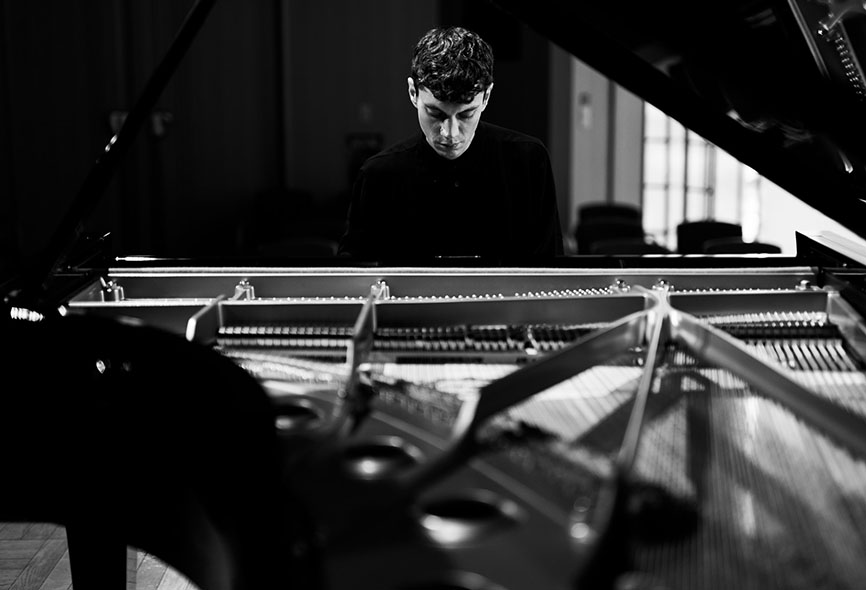
But POSTCITY is also full of projects, workshops and panels for the AIxMusic Festival. Reeps One (UK) by Nokia Bell Labs focuses on disruptive research for the next phase in human history, Jérôme Nika (FR) works with researchers from IRCAM and reflects on the role of the interaction of man and machine in the context of music and Daniele Ghisi (IT) invites to the workshop “La machine des monstres”. Computer music designer, musician and researcher Koray Tahiroğlu (Fl/TR) presents tools for real-time performance of digital music developed at Aalto University. The series of AIxMusic Workshops ends with Gerald Wirth from the Vienna Boys Choir and Vive Kumar from Athabasca University presenting their latest research on music teaching with AI.
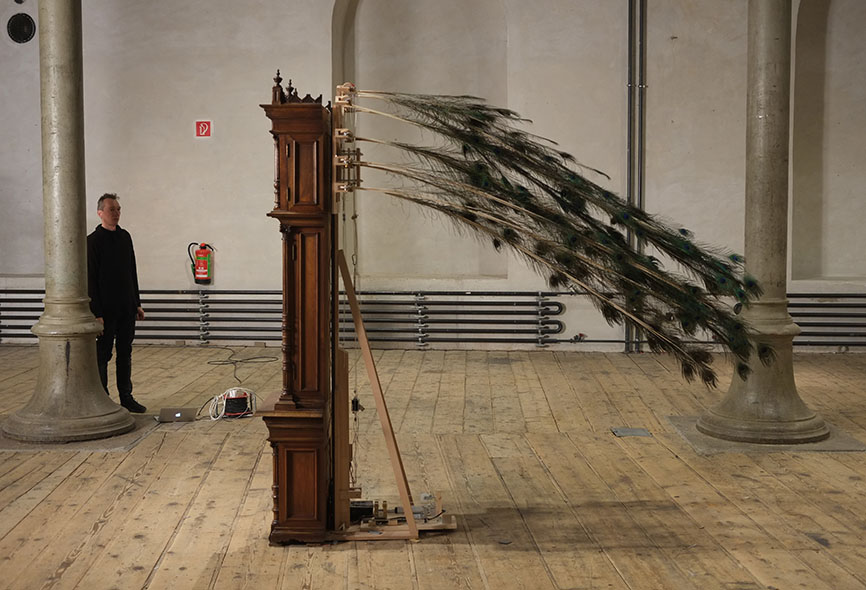
But Gerald Wirth is also represented with a project in the exhibition: The Neuromusic Education Simulator (NES). In collaboration with psychologist pedagogues, Professor Gerald Wirth developed his teaching methodology: the “Wirth Method”. The aim is to keep students’ attention at a high level. The teaching is supported by an AI system. By means of neuroal networks movement is activated, and by repetitions with variations the contents are stored lastingly in the long-term memory. The use of NES on the basis of the Wirth method is made possible by the use of VR & AR. With the help of this system, talents or deficits as well as ADHD can be detected.
NOISA, Network of Intelligent Sonic Agents, by Koray Tahiroglu (FI/TR) is an interactive music system that observes the actions of the performers and gives autonomous, unobtrusive reactions to them. In this project for co-creative music performances, intelligent sonic agents are developed to motivate performers and to promote and maintain communication with the NOISA system.
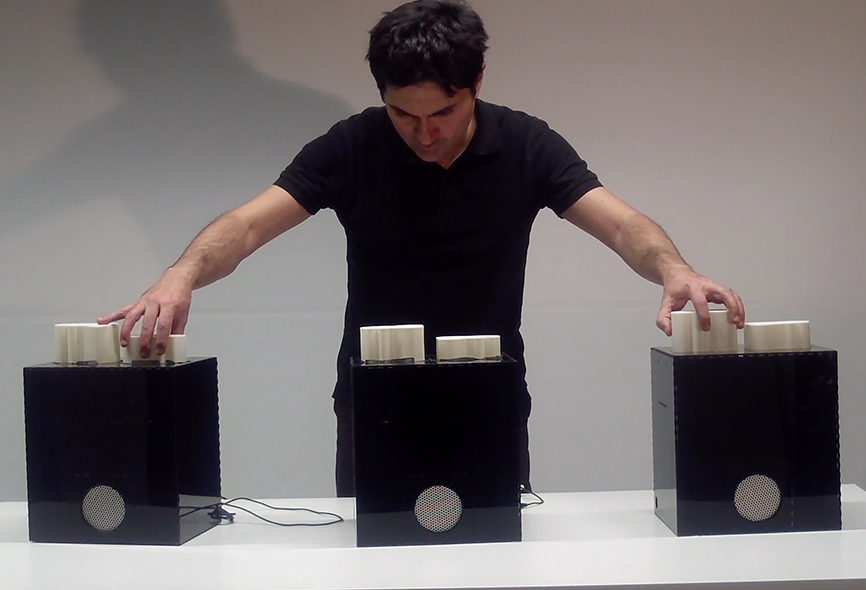
The Sunday’s finale will be the Episode am Fluss, a reminiscence on the first Klangwolke 1979 by Ars Electronica, Bruckner Orchestra and Brucknerhaus. Like the orchestra concert in the Great Hall of the Brucknerhaus at that time, the starting point of this unique journey of sound will be the orchestra concert. Its music, however, will not simply be transferred to the outside world, to the powerful sound system of the Klangwolke, but will form the sound material for Wolfgang “Fadi” Dorninger, Ali Nikrang, Roberto Paci Dalò, Rupert Huber, Markus Poschner, Sam Auinger as well as Christian Fennesz and Lillevan, who will create new acoustic, analog and digital sound spaces from it.
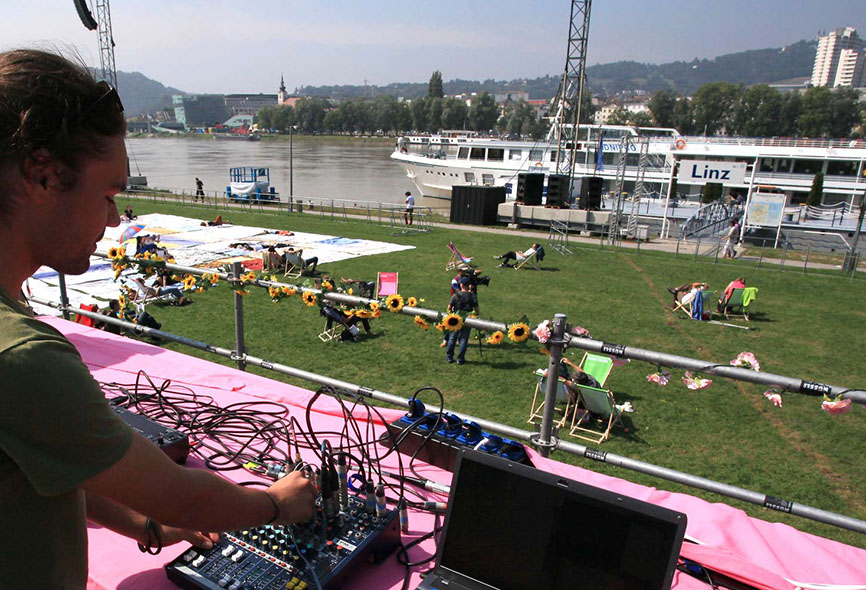
The Monday of the festival traditionally has the motto Music: The “Music Monday“ invites to an all-day tour, which stops exclusively at installations and projects that revolve around sound worlds and music. The tour, designed by Werner Jauk (AT) and Tilman Hatje (DE), starts in the morning at the Ars Electronica Center, ends in the POSTCITY’s Gleishalle and concludes with the festival’s final concert.
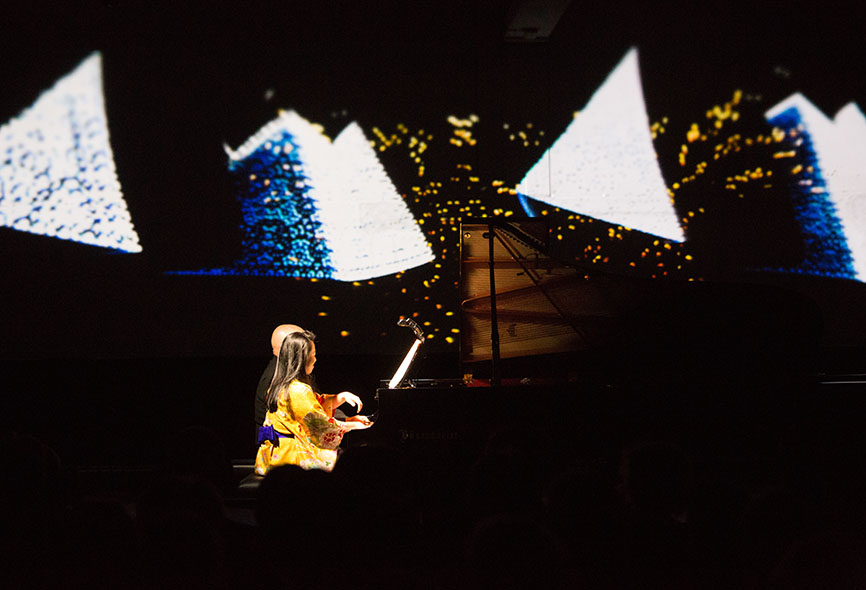
Ars Electronica bids farewell to POSTCITY on the evening of Monday, September 9, with two Austrian premieres. The piano concerto by Maki Namekawa and Dennis Russell Davies, which Cori O’Lan will supplement with real-time visualizations, is the last item on this year’s festival program and a true highlight: First, Maki Namekawa and Dennis Russell Davies will play Igor Stravinsky’s Firebird, arranged by Dennis Russell Davies for piano four-hands. After that, Maki Namekawa will play Philip Glass’„Piano Sonata“, accompanied by Cori O ‘Lan’s impressive visualizations. The piano sonata was commissioned jointly by the Ruhr Piano Festival, the Philharmonie de Paris and Ars Electronica.
This wasn’t enough and you are looking for more events and exhibitions? You can find the whole program on our website.
To learn more about Ars Electronica, follow us on Facebook, Twitter, Instagram et al., subscribe to our newsletter, and check us out online at https://ars.electronica.art/news/en/.
